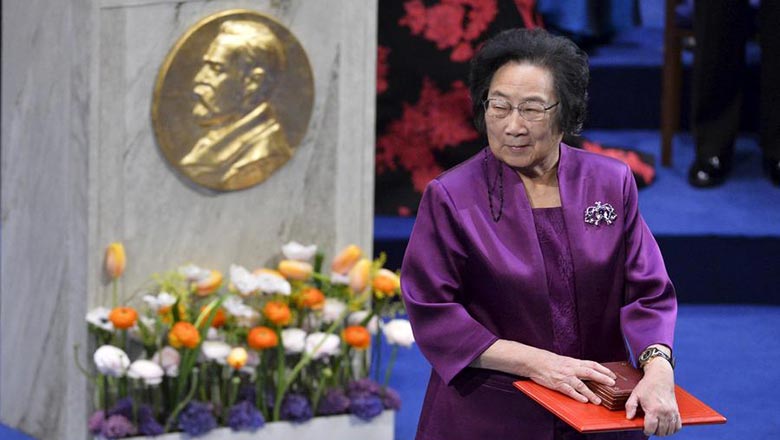Balancing security acts with rights of individuals
Updated: 2015-12-29 08:05
(China Daily)
|
||||||||
 |
|
Border police officers conduct an anti-terror drill in Bortala, Xinjiang Uygur autonomous region, this month. The top legislature passed the country's first anti-terrorism law on Sunday, together with several other laws. ZHANG JIA/XINHUA |
Terrorism is not something peculiar to foreign soil.
The latest reminder came on Christmas Eve in Beijing, when some embassies warned of a possible attack on foreigners and the municipal authorities issued the first-ever holiday security alert.
That President Xi Jinping signed the country's first Anti-Terrorism Law immediately after it received legislative approval, and that it is scheduled to take effect four days afterward on Friday, is indicative of the need for such a law.
The country requires the law to cope with the increased threat from terrorist activities, and to regulate and coordinate its anti-terrorism actions.
The new law meets the needs of security by obligating all parties to cooperate with the authorities when asked to. Fines and custody have been prescribed for those who fail to do so.
With the establishment of a national anti-terrorism intelligence and leadership center, and law enforcement agencies, the armed forces, government institutions and individual citizens all assigned legal responsibilities, this law will almost certainly make the country's campaign against terrorism more efficient.
It must be pointed out, however, that the ultimate goal of the Anti-Terrorism Law is none other than protection of lives, and is meant to operate only within the framework of the Constitution. The constitutional assurance of human rights and civil liberties provide the ground for preventing any possible excess in law enforcement.
The current law does include clauses promising proper use of information involving commercial secrets and citizens' privacies. But considering the law's emphasis on precautionary and preemptive moves, chances are that institutions and individuals may see some of their otherwise constitutional rights and interests compromised in the name of security needs. Such compromise may involve freedom of movement and correspondence, even the right to know.
Security is an overriding concern in all societies, which is why people have no difficulty accepting some loss of freedom when security is at stake. The United States after the Sept 11, 2001 terrorist attacks is a ready example of the sacrifice of personal freedoms for greater security.
In many ways this is a necessary price.
But since the law allows extensive options for security agencies to pursue their ends, from surveillance and the freezing of assets to restriction of personal freedom, there should be legal and administrative guarantees that such restrictions do not go overboard in practice.
It is important to ensure that society and its members do not have to pay such a price when it is not absolutely necessary. When a price has to be paid, it should be commensurate with the actual need.
- Highlights of China's newly adopted counter-terrorism law
- Internet firms to aid anti-terrorism mission
- China adopts first counter-terrorism law in history
- China slams US double standards on terrorism
- China calls for more anti-terrorism cooperation
- Beware domestic terrorism
- Increasing video surveillance can help prevent terrorism
- China vows to tighten crackdown on terrorism
- More aid from China set for Syria
- Japanese journalist reportedly being held in Syria
- New York City has warmest Christmas Eve on record
- One dead as fight leads to fatal shooting at North Carolina mall
- Trump's lead bodes well for Hillary Clinton's presidential bid
- Spanish Socialist leader insists no support for Rajoy

 Top 10 policy changes in China in 2015
Top 10 policy changes in China in 2015
 Yearender 2015: Natural disasters
Yearender 2015: Natural disasters
 The world in photos: Dec 21 - 27
The world in photos: Dec 21 - 27
 Yearender: Film critics' top 10 Chinese films of 2015
Yearender: Film critics' top 10 Chinese films of 2015
 Goldware inscribed with characters unearthed from ancient cemetery
Goldware inscribed with characters unearthed from ancient cemetery
 China's top scientific achievements in 2015
China's top scientific achievements in 2015
 Yearend 2015: A picture and its story
Yearend 2015: A picture and its story
 Christmas celebrated across the world
Christmas celebrated across the world
Most Viewed
Editor's Picks

|

|

|

|

|

|
Today's Top News
Shooting rampage at US social services agency leaves 14 dead
Chinese bargain hunters are changing the retail game
Chinese president arrives in Turkey for G20 summit
Islamic State claims responsibility for Paris attacks
Obama, Netanyahu at White House seek to mend US-Israel ties
China, not Canada, is top US trade partner
Tu first Chinese to win Nobel Prize in Medicine
Huntsman says Sino-US relationship needs common goals
US Weekly

|

|







